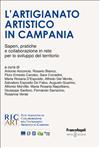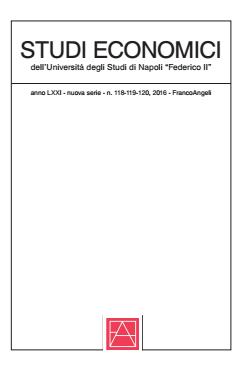
Saperi, pratiche e collaborazione in rete per lo sviluppo del territorio
Il volume presenta i risultati più importanti ottenuti nell’ambito del progetto RICART (Rete Innovativa di Collaborazione dell’Artigianato artistico in Campania), nato allo scopo di delineare lo stato del settore dell’artigianato artistico in Campania. Il progetto si è posto sia l’obiettivo di esplorare quanto le imprese del settore possano contribuire allo sviluppo del territorio, sia quello di individuare le modalità di aggregazione, condivisione e collaborazione più efficaci per favorire la crescita del settore e del territorio. RICART ha visto come partner partecipanti le sette università della Campania, il consorzio Universitario CUEIM, l’Istituto di Ricerca su Innovazione e Servizi per lo Sviluppo del CNR (IRISS - CNR), l'agenzia di formazione Prisma Consulting e le società PROTOM GROUP e ARES 2.0, con capofila l’Università di Salerno.
cod. 11820.15


